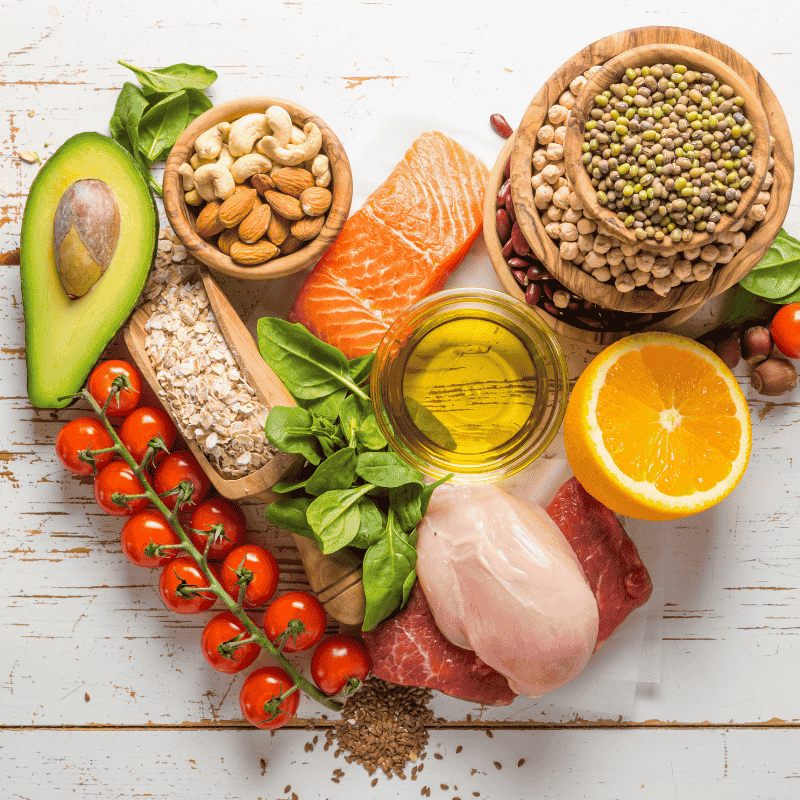We’ve all heard the saying, “You are what you eat.” But modern science takes it a step further—“You feel what you eat.”
In recent years, researchers have discovered a strong link between gut health and mental wellness. The trillions of bacteria living in your digestive system, known as the gut microbiome, play a vital role not just in digestion, but also in mood regulation, stress response, and even long-term mental health conditions.
This blog explores how food impacts your mental health, the role of the gut-brain connection, and simple ways you can eat to feel better both physically and emotionally.
The Gut-Brain Connection
Your gut and brain are constantly talking to each other through what scientists call the gut-brain axis. This connection works via:
- The Vagus Nerve: A direct “highway” between the stomach and the brain.
- Neurotransmitters: Chemicals like serotonin and dopamine, many of which are actually produced in the gut.
- Gut Bacteria: Healthy gut bacteria release compounds that influence mood and reduce stress.
Surprisingly, about 90% of serotonin (the happy hormone) is made in the gut. That’s why a balanced diet directly affects your emotional state.
Foods That Boost Mental Wellness
- Probiotic-Rich Foods
- Yogurt, kefir, kimchi, sauerkraut, and kombucha
- These add “good bacteria” to your gut, improving digestion and mood stability.
- Fiber-Packed Foods
- Whole grains, beans, lentils, fruits, and vegetables
- Fiber feeds the healthy bacteria in your gut, helping them thrive.
- Omega-3 Fatty Acids
- Found in salmon, flaxseeds, chia seeds, and walnuts
- Omega-3s reduce inflammation and improve brain function, lowering risks of depression and anxiety.
- Fermented Foods
- Pickles (naturally fermented), miso, and tempeh
- Known to strengthen gut bacteria and aid emotional balance.
- Polyphenol-Rich Foods
- Dark chocolate, green tea, berries, and olives
- These antioxidants fight inflammation and improve cognitive function.
Foods That Harm Gut and Mental Health
- Processed Sugary Foods: Spikes blood sugar, leading to mood swings and energy crashes.
- Excessive Caffeine: Can increase anxiety and disturb sleep.
- Fried or Greasy Foods: Harder to digest, slowing down gut function.
- Artificial Sweeteners: Some disrupt gut bacteria balance, worsening stress and depression.
Practical Tips to Improve Gut and Mental Wellness
- Start Your Day with Probiotics
- A simple bowl of yogurt or a glass of kefir in the morning can balance your gut flora.
- Stay Consistent with Fiber
- Include at least 25–30g of fiber daily through fruits, vegetables, and whole grains.
- Hydration Matters
- Water helps digestion and nutrient absorption, indirectly supporting mood regulation.
- Mindful Eating
- Eating slowly and avoiding distractions reduces stress on the digestive system.
- Limit Alcohol and Processed Foods
- Both harm gut bacteria and increase inflammation in the body.
Real-Life Example
Consider two individuals:
- Person A: Eats fast food, sugary snacks, and relies on coffee to get through the day. They often feel anxious, have poor sleep, and low energy.
- Person B: Includes yogurt, leafy greens, fish, and fruits in their diet. They report better energy, stable mood, and improved focus.
This comparison shows how dietary choices shape mental health outcomes in real life.
Beyond Food: Lifestyle Habits That Support Gut Health
- Regular Exercise: Boosts healthy gut bacteria and reduces stress hormones.
- Adequate Sleep: Poor sleep weakens digestion and mental stability.
- Stress Management: Practices like meditation, yoga, or deep breathing keep both gut and brain balanced.
Conclusion
The connection between gut health and mental wellness is no longer just a theory—it’s a proven reality. What you eat has a powerful effect not only on your body but also on your mind. By choosing the right foods and supporting your gut with healthy lifestyle practices, you can reduce stress, stabilize mood, and improve overall well-being.
So, the next time you prepare a meal, remember: you’re not just feeding your stomach—you’re also feeding your mind.

